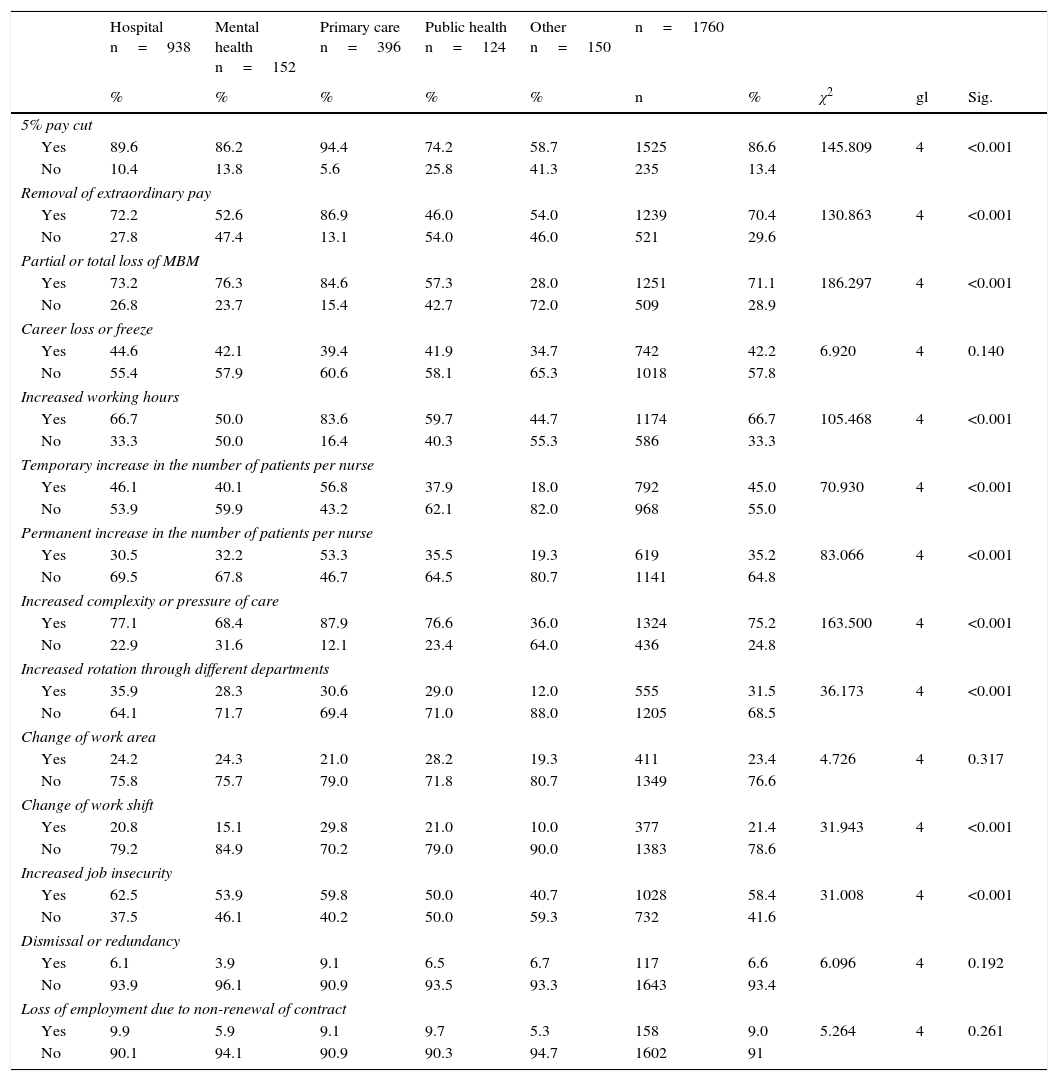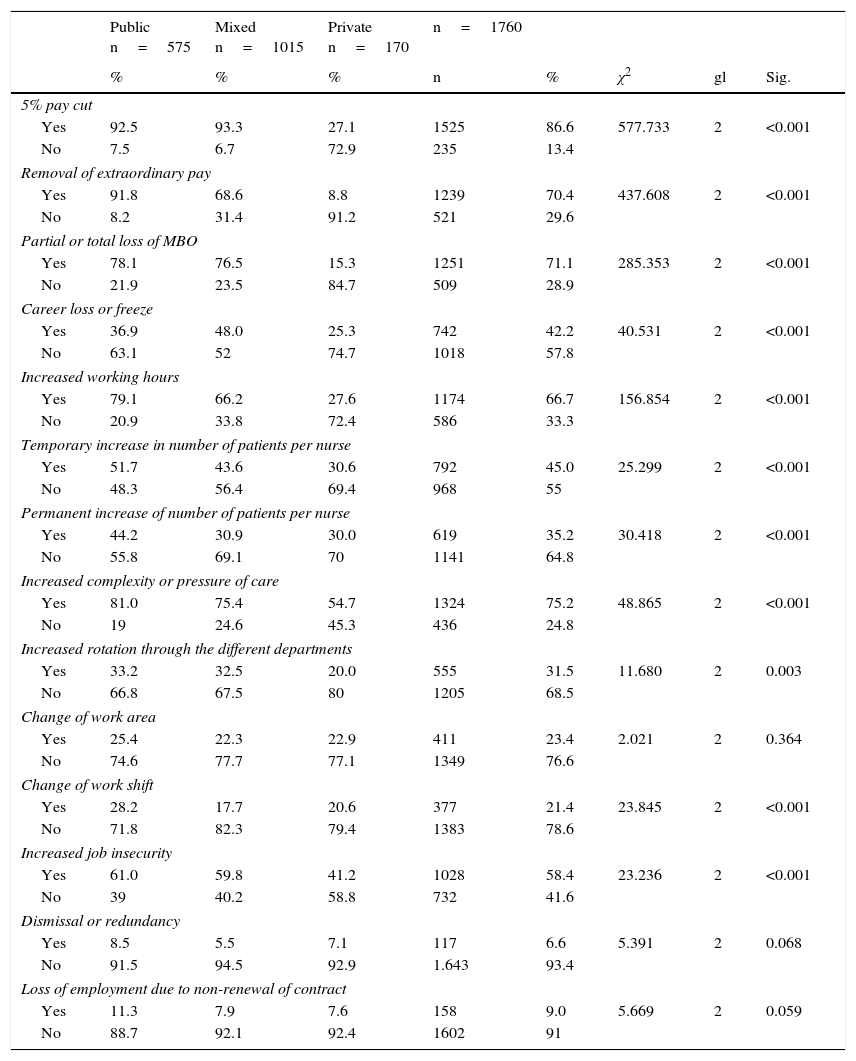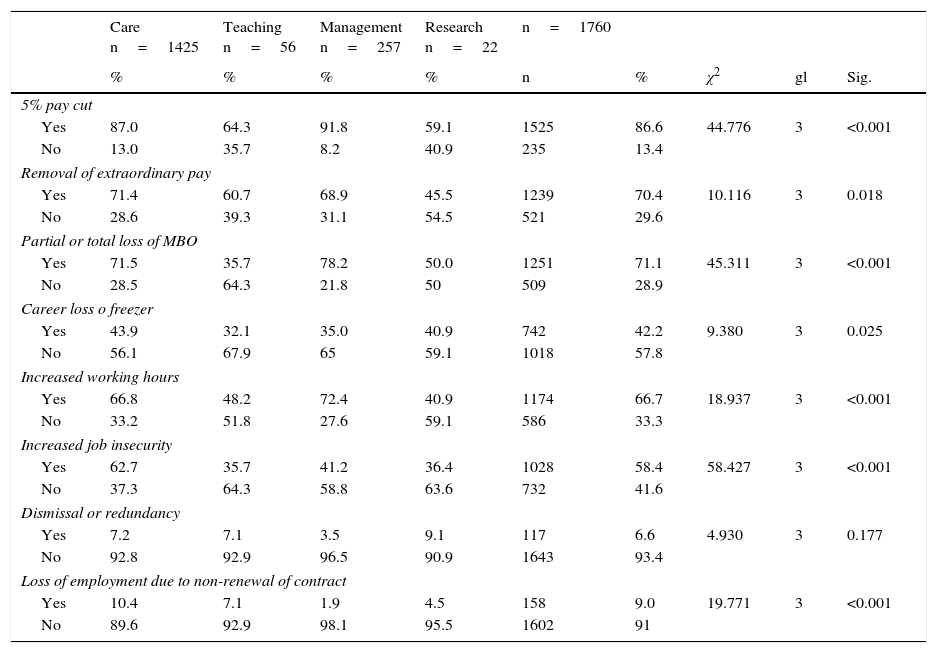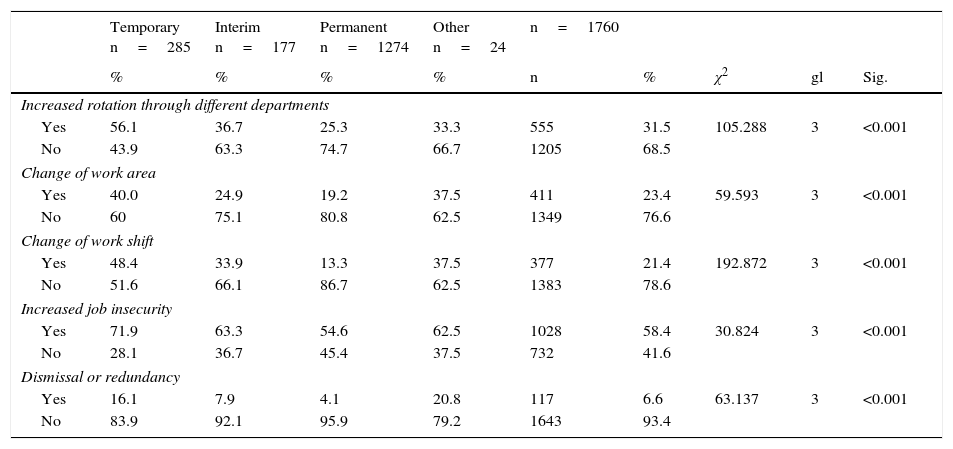In a context of economic crisis and policies to reduce the public deficit, the budgets of the Catalan Health Institute (CHI) were cut by 15.33% between 2010 and 2014.
ObjectiveTo assess the perceived impact on nurses’ work conditions of measures to contain health spending.
MethodThe study design was descriptive and transversal. A sample of 1760 nurses from the province of Barcelona answered a questionnaire on the perceived impact of health spending containment measures implemented in their workplace during the early years of the crisis.
ResultsAmong the main aspects of the perceived impact of these measures, 86.6% of the nurses identified a pay cut and an increase in the following relevant parameters of their working conditions: number of hours worked (66.7%), final ratio of treated patients (35.2%), task complexity and workload (75.3%), rotation through various departments (31.5%), work shifts (21.4%) or work areas (23.4%), job insecurity (58.4%) and loss of employment by dismissal (6.6%) or non-renewal of contract (9%).
ConclusionsThe perceived impact of the crisis showed a triple negative component: pay cut, work overload and job insecurity. As a combined effect of this multiple trend, the nurses acknowledged a deterioration in their working conditions and quality of working life.
En un contexto de crisis económica y de políticas de reducción del déficit público, los presupuestos del Instituto Catalán de la Salud (ICS) fueron recortados en un 15.33% entre 2010 y 2014.
ObjetivoEvaluar el impacto percibido de las medidas de contención del gasto sanitario en las condiciones de trabajo de las enfermeras.
MétodoEl diseño del estudio fue descriptivo y transversal. Una muestra de 1.760 enfermeras de la provincia de Barcelona respondió un cuestionario sobre el impacto percibido de las medidas de contención del gasto sanitario implementadas en su centro de trabajo durante los primeros años de la crisis.
ResultadosEntre los aspectos principales del impacto percibido por las medidas de contención del gasto, un 86,6% de las enfermeras identificaron una reducción salarial. También percibieron un aumento en los siguientes parámetros relevantes de las condiciones de trabajo: número de horas trabajadas (66,7%), ratio definitivo de pacientes atendidos (35,2%), complejidad y presión asistencial (75,3%), rotación por diversos servicios (31,5%), cambio de turno (21,4%) o ámbito (23,4%) de trabajo, precariedad laboral (58,4%) y pérdida del empleo por despido (6,6%) o no renovación del contrato (9%).
ConclusionesEl impacto percibido de la crisis mostró un triple componente de signo negativo: recorte salarial, sobrecarga de trabajo e inseguridad en el empleo. Y como efecto combinado de esta múltiple tendencia se reconoció un deterioro de las condiciones de trabajo y de la calidad de vida laboral de las enfermeras.
Artículo
Comprando el artículo el PDF del mismo podrá ser descargado
Precio 19,34 €
Comprar ahora












